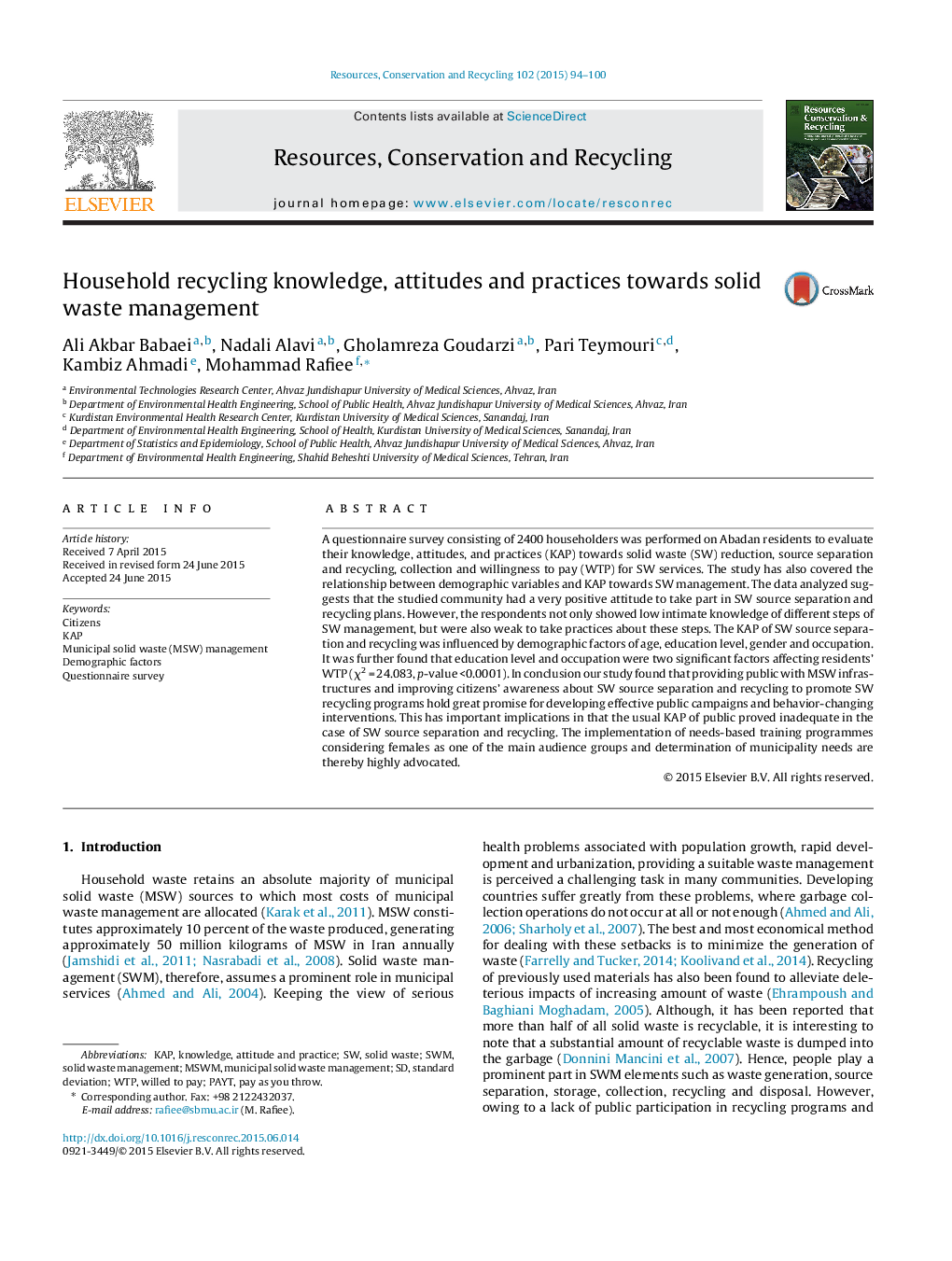| Article ID | Journal | Published Year | Pages | File Type |
|---|---|---|---|---|
| 7495103 | Resources, Conservation and Recycling | 2015 | 7 Pages |
Abstract
A questionnaire survey consisting of 2400 householders was performed on Abadan residents to evaluate their knowledge, attitudes, and practices (KAP) towards solid waste (SW) reduction, source separation and recycling, collection and willingness to pay (WTP) for SW services. The study has also covered the relationship between demographic variables and KAP towards SW management. The data analyzed suggests that the studied community had a very positive attitude to take part in SW source separation and recycling plans. However, the respondents not only showed low intimate knowledge of different steps of SW management, but were also weak to take practices about these steps. The KAP of SW source separation and recycling was influenced by demographic factors of age, education level, gender and occupation. It was further found that education level and occupation were two significant factors affecting residents' WTP (Ï2Â =Â 24.083, p-value <0.0001). In conclusion our study found that providing public with MSW infrastructures and improving citizens' awareness about SW source separation and recycling to promote SW recycling programs hold great promise for developing effective public campaigns and behavior-changing interventions. This has important implications in that the usual KAP of public proved inadequate in the case of SW source separation and recycling. The implementation of needs-based training programmes considering females as one of the main audience groups and determination of municipality needs are thereby highly advocated.
Keywords
Related Topics
Physical Sciences and Engineering
Energy
Renewable Energy, Sustainability and the Environment
Authors
Ali Akbar Babaei, Nadali Alavi, Gholamreza Goudarzi, Pari Teymouri, Kambiz Ahmadi, Mohammad Rafiee,
